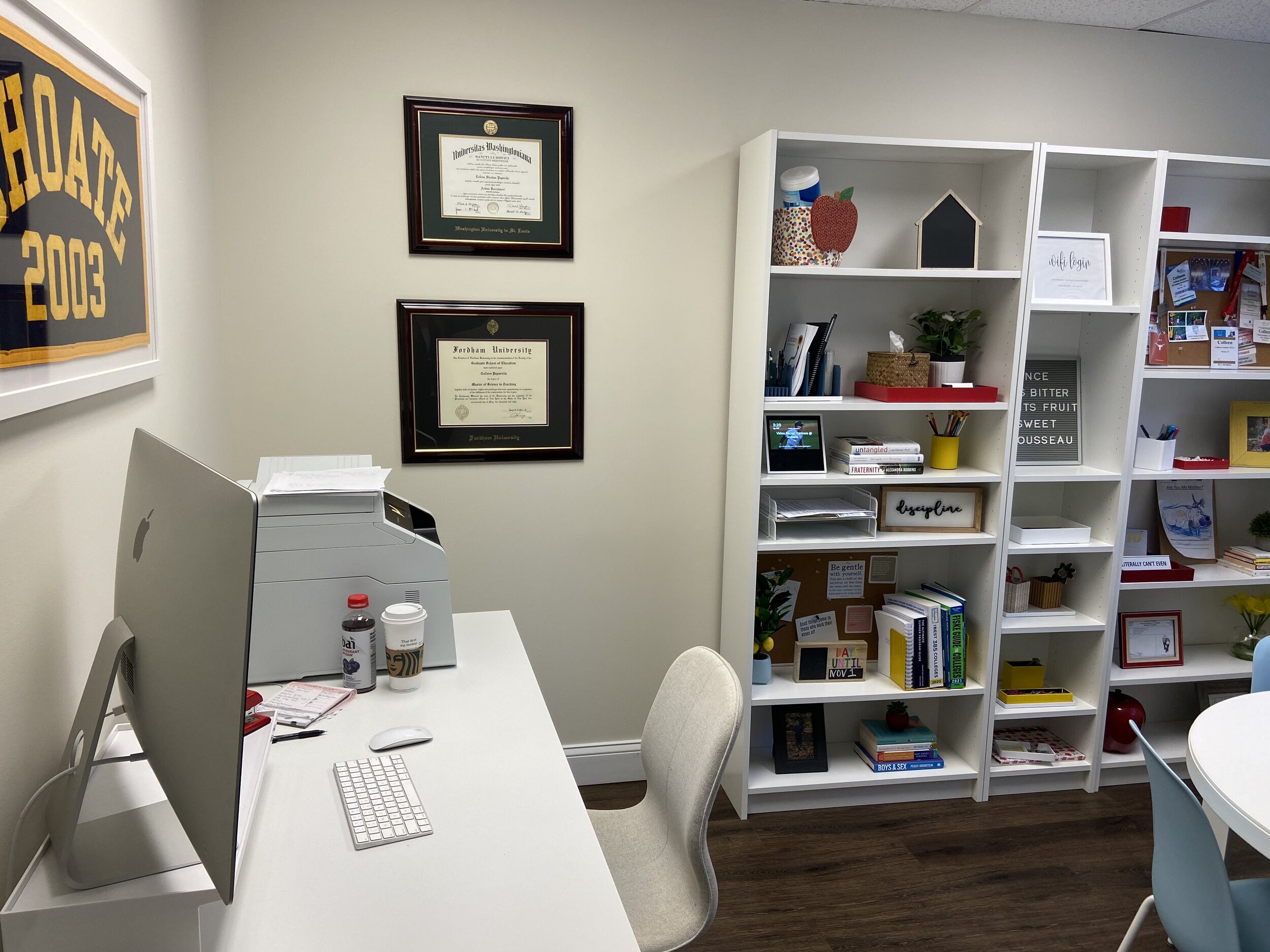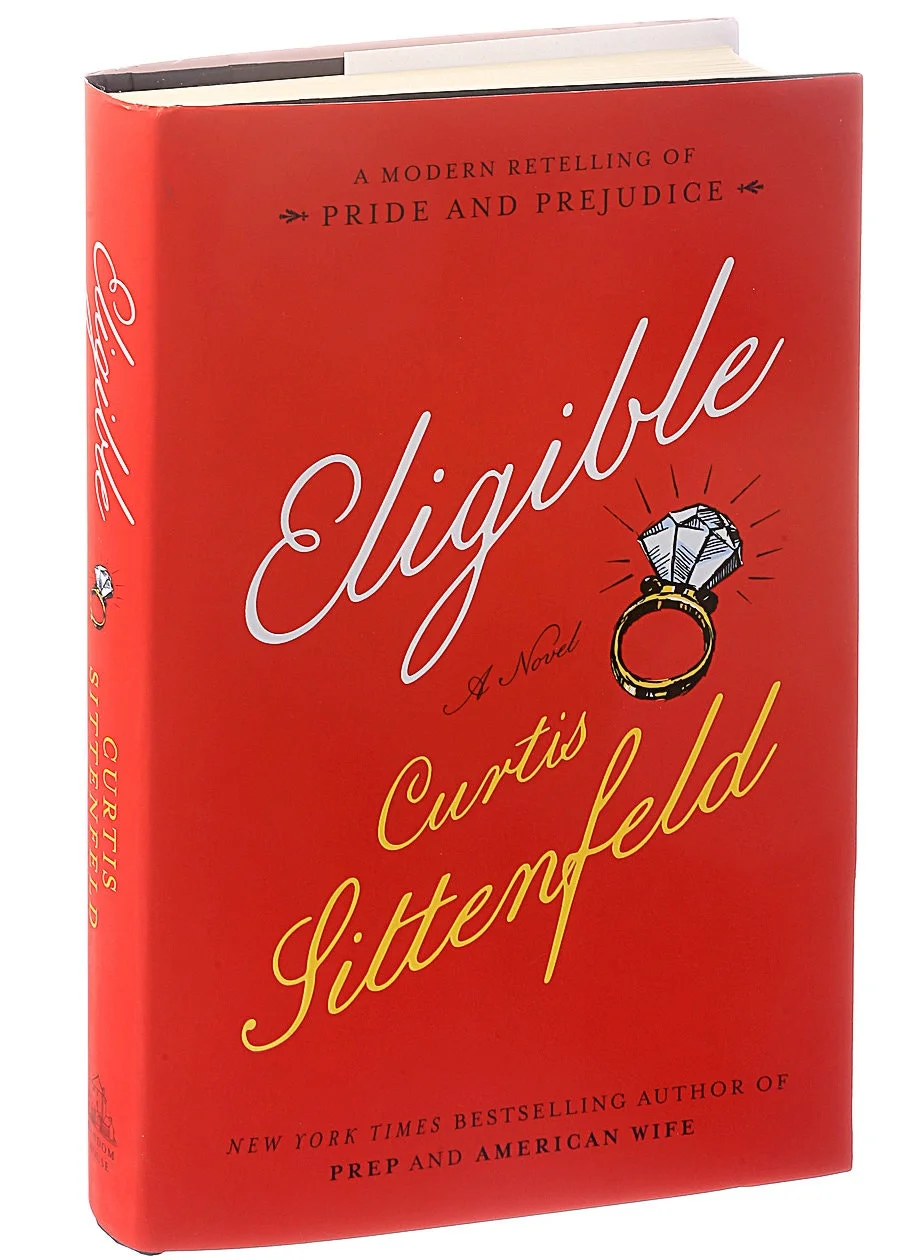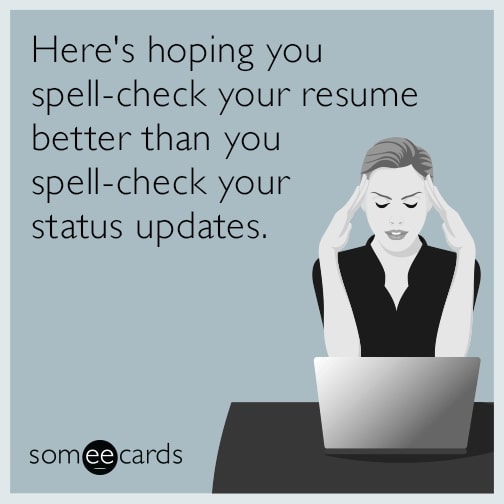My essay coach would work with me to complete the tasks in the last post, mapping out common themes between supplements and helping me select an appropriate text. This may involve needing to read a new book if I hadn’t read anything appropriate (but we try to avoid extra work as much as we can!).
If students want (or need!) to start fresh with a new book, we often recommend the New York Times bestseller list to choose something that’s not too fluffy (but that also sounds like a piece of fiction they might actually read in their spare time). It’s better to pick something recent because it sounds like the student reads on a regular basis and isn’t digging up the one book he read on vacation three years ago.
For the purposes of this post, I’m going to have to use a book from 2016 because… I’m digging up the one novel I read on vacation three years ago :) Don’t judge - I read a lot, but it’s all non-fiction! I am choosing to write about “Eligible: A modern retelling of Pride and Prejudice” by Curtis Sittenfeld. I was an English major in college so this isn’t too out of left field for me. An admissions officer would see that it fits with the rest of my imaginary profile. It was also a New York Times bestseller as well as a “Best Book of the Year” from NPR, so it’s not quite as random as it seems.
STEP TWO: Free-write some general thoughts on the book without responding to any of the specific prompts.
Note: I wrote these as myself as if I was actually completing the assignment. So, if this sounds like the voice of a 35-year-old instead of a high school student - that’s why! As we have covered before, we work very hard to help our students maintain their own unique voices.
Here’s my stream-of-consciousness free-write: In addition to being a fun book for me to read, this book also pushed me to think critically about myself as a reader. I chose to major in English in college because I really enjoyed writing (and I knew that I was good at it). I also absolutely loved to read, but not obscure texts from centuries ago. What I didn’t realize at the time is that English majors don’t read or write any more than other humanities majors - they just stick to English literature rather than history, politics, or other subjects. Eventually, I got really sick of analyzing decades or centuries-old literature that actually didn’t interest me all that much. I spent a lot of time skimming and reading Spark Notes (are Spark Notes still a thing?).
Eligible showed me that a “boring” or “outdated” read can actually be exciting if one gives it a chance. I was able to step back and think about how centuries-old language can mask relevant themes, and I wondered about how much I had missed over the years because I was turned off to various texts for superficial reasons.
I also thought about how our struggles as individuals persist over the generations. Pride and Prejudice was written more than 200 years ago, but women are still thinking about the same kinds of social and economic issues - just in a different context.
STEP THREE: Use information from the free-write to craft a RESPONSE TO EACH PROMPT.
NOTE: I’m not going to write out a full essay for each prompt in this blog post the way a student would, but I’ll give a general idea of the approach I’d take.
Boston College Supplement Essay #1 (400 w): Great art evokes a sense of wonder. It nourishes the mind and spirit. Is there a particular song, poem, speech, or novel from which you have drawn insight or inspiration?
I have always been an avid reader, but Curtis Sittenfeld’s Eligible gave me important insight into the value of broadening my literary horizons to include classic works of literature. I used to avoid these books, believing them to be outdated and difficult to read; yet, as I tore through the pages of this re-imagined version of Pride and Prejudice and acknowledged the present-day relevance of Austen’s original themes from the 19th century, I realized that social and political issues are often timeless, persisting from generation to generation. Moreover, I recognized that I had likely missed important lessons by always reaching for the latest best-sellers. With Eligible in mind, I felt inspired to read some of the texts that I had avoided over the years: 1984, Animal Farm, and Fahrenheit 451.
UVA College of Arts and Sciences Supplemental Essay (250 w): What work of art, music, science, mathematics, or literature has surprised, unsettled, or challenged you, and in what way?
Curtis Sittenfeld’s Eligible challenged me to push beyond my natural inclination for modern literature. As I tore through the pages of this re-imagined version of Pride and Prejudice and acknowledged the present-day relevance of Austen’s original themes from the 19th century, I realized that social and political issues are often timeless, persisting from generation to generation. Moreover, I recognized that I was likely missing important lessons by always reaching for the latest best-sellers. With Eligible in mind, I resolved to read some of the texts that had intimidated me over the years: 1984, Animal Farm, and Fahrenheit 451.
Dartmouth College Supplemental Essay D (250 w): “Yes, books are dangerous,” young people’s novelist Pete Hautman proclaimed. “They should be dangerous—they contain ideas.” What book or story captured your imagination through the ideas it revealed to you? Share how those ideas influenced you.
Through Eligible, her re-imagined adaptation of Pride and Prejudice, Curtis Sittenfeld helped provide new meaning to the old adage: “the more things change, the more they stay the same.” Eligible captured my imagination with the idea that the core challenges of modern life are not so different from those with which Jane Austen’s 19th-century characters also struggled. I realized that social and political themes are often timeless, persisting from generation to generation, and that I was likely missing important lessons by always reaching for the latest best-sellers over classic works of literature. As I tore through Sittenfeld’s pages, I resolved to use her influence to choose to read some of the texts that had intimidated me over the years: 1984, Animal Farm, and Fahrenheit 451.
Emory University “Tell Us About You” Essay 1 (150 w): Which book, character, song, or piece of work (fiction or non-fiction) represents you, and why?
Reading has always been my guilty pleasure. For as long as I can remember, I got my fix wherever I could: under the covers with a flashlight as a child, slipped between textbooks in high school math class, or by the dim light of my iPad while feeding my newborns more than a decade later. Eligible, Curtis Sittenfeld’s re-imagined modern-day version of Pride and Prejudice, represents me in that it mirrors my long-standing ability to find relevant meaning in text, regardless of setting. My love for reading has always aligned with my ability to grasp themes and connect them to my own experiences, hopes, and dreams, despite superficial differences.
Points to notice:
Even though my responses didn’t require me to be all that specific, this would have been really difficult to write if I hadn’t read the book.
I was able to cut and paste a lot between the first three answers, giving myself a solid base from which to approach each of these prompts.
None of these answers are exactly the same: I had to modify each individual answer to bring language from the prompt into my response. In order to do this, I had to constantly ask myself: are you answering each question that the prompt asks?
The last response was ultimately very different and I had to take some creative liberties with the actual content: that’s fine. Remember, colleges will only see the essays submitted to their own school: they won’t see what is sent elsewhere. It’s okay if the various answers don’t perfectly align with one another when they are all on the same page together.
STEP FOUR: Bring drafts to essay coach meeting.
After receiving TONS of reminders about completing the step three drafts in a timely manner, I would then bring my drafts to my next scheduled essay coach meeting. During the session, essay coaches would help me to further develop and edit these initial pieces.
STEP FIVE: Look for follow-up edits from Colleen.
Okay, this is getting confusing now with “Colleen-as-student” and “Colleen-as-Colleen,” but hang in there with me. If I were a student, I would wait a day or so for the actual Colleen (me!) to follow up with an additional level of edits above and beyond those completed at the essay coaching meeting. I do this for all of our students without charging them for any additional time beyond their essay coaching appointment, because I think that it’s helpful to have another layer of review.
STEP SIX: Finalize edits at home before next essay coaching meeting.
After “Colleen-as-student” receives her additional edits and suggestions from “Colleen-as-Colleen,” “Colleen-as-student” would then finalize them at home before bringing them back to the essay coach meeting for final approval.
STEP SEVEN: Make additional changes with essay coach during the meeting and begin to plan out the next round of essays.
I would go back to meet with the essay coach to put the finishing touches on everything and we’d begin Step One again with our next round of essays.
STEP EIGHT: Approve any additional post-meeting “finishing touch” edits from colleen, confirm with Rebeccah that the essays are considered complete, and write the second round of drafts for the new essays.
As of mid-July, we have extremely limited availability for ongoing work with seniors in the Class of 2020. If you’re interested in grabbing one of the very last first-round slots or having first priority for the second-round waitlist, don’t wait to book your Meet & Greet session.

































